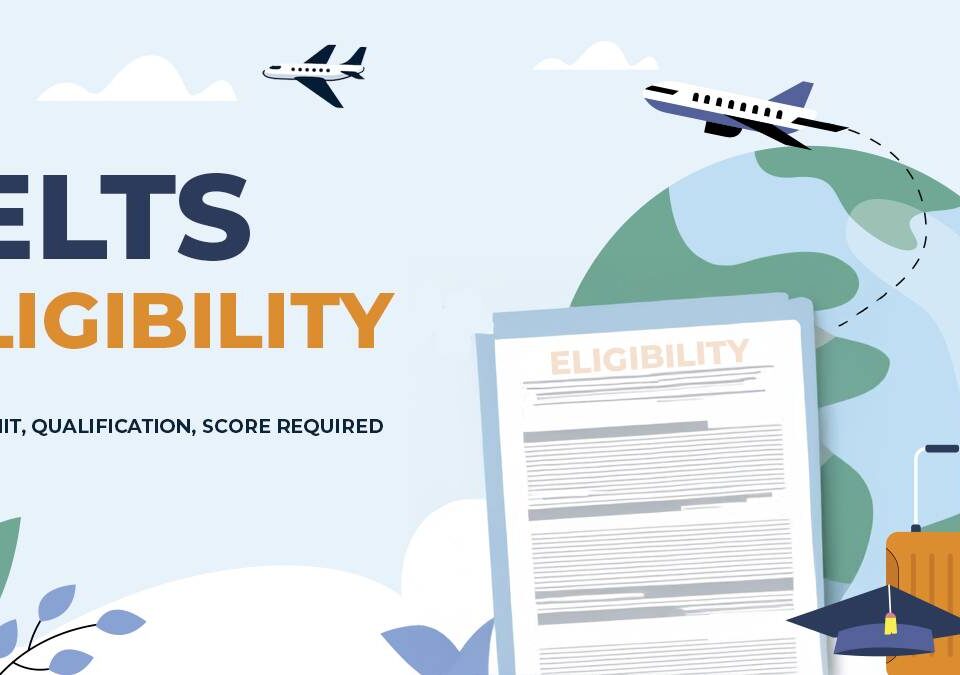IELTS Exam Syllabus & Pattern 2024: General and Academic Overview

Top GRE Prep. Mistakes Students Make and How to Avoid Them
July 18, 2024
Choosing the Right University Abroad: Key Factors to Consider
July 31, 2024The International English Language Testing System (IELTS) is a crucial stepping stone for individuals aiming to study, work, or live in an English-speaking country. Whether you’re planning to enroll in a university abroad or seeking global career opportunities, understanding the IELTS exam syllabus and pattern for 2024 is essential. This comprehensive guide is crafted specifically for IELTS candidates and exam takers, offering insights into both the General and Academic modules. With well-organized sections and easy-to-understand explanations, this post will help you prepare effectively and boost your confidence.
Understanding IELTS and Its Importance
IELTS is recognized worldwide as a reliable measure of English language proficiency. Over three million tests are taken annually, making IELTS one of the most popular language proficiency tests. The test assesses four key language skills – Listening, Reading, Writing, and Speaking.
The Academic module is designed for those seeking higher education or professional registration. The General Training module, on the other hand, is meant for individuals migrating to English-speaking countries or pursuing secondary education and training programs.
The Structure of the IELTS Exam
The IELTS exam is divided into four sections, each designed to test different language skills. Both the General Training and Academic modules follow the same format for Listening and Speaking but differ in Reading and Writing.
Listening Section: This section consists of four recordings, each followed by a series of questions. The recordings include conversations and monologues from native English speakers, covering a range of topics.
Reading Section: The reading section varies between the Academic and General Training modules. The Academic module includes three long texts taken from books, journals, and newspapers. The General Training module features a mix of texts from everyday materials like advertisements, brochures, and instructions.
Writing Section: The writing tasks also differ between the two modules. The Academic module requires candidates to describe visual information in Task 1 and respond to an argument or problem in Task 2. The General Training module involves writing a letter in Task 1 and an essay in Task 2.
Speaking Section: The speaking test is a face-to-face interview with an examiner. It includes three parts – an introduction and interview, a long turn where the candidate speaks on a particular topic, and a discussion based on the topic from Part 2.
Detailed Breakdown of the IELTS Listening Section
The Listening section is the same for both Academic and General Training modules. It lasts approximately 30 minutes, with 10 additional minutes given to transfer answers to the answer sheet.
Part 1: A conversation between two people set in an everyday social context.
Part 2: A monologue set in an everyday social context, such as a speech about local facilities.
Part 3: A conversation involving up to four people set in an educational or training context, typically involving complex ideas.
Part 4: A monologue on an academic subject, such as a university lecture.
Strategies for Excelling in the Listening Section
To excel in the Listening section, practice is key. Make a habit of listening to English podcasts, radio shows, and lectures. Focus on understanding different accents and note-taking. Practice summarizing what you hear and predicting answers while listening.
In-depth Look at the IELTS Reading Section
The Reading section for the Academic module includes texts that are complex and analytical. The General Training module, however, features more practical and work-related texts.
Academic Reading: This section includes three long passages taken from books, scholarly articles, and magazines. It tests comprehension, inference, and summarization skills.
General Training Reading: This section is divided into three parts. The first part contains short texts related to everyday life, the second part focuses on work-related issues, and the third part includes a longer, more complex text.
Tips for Mastering the Reading Section
Enhance your reading skills by practicing with a variety of texts. Focus on skimming and scanning techniques to find information quickly. Pay attention to keywords and practice summarizing paragraphs to grasp the main idea.
Comprehensive Guide to the IELTS Writing Section
The Writing section consists of two tasks in both the Academic and General Training modules. The tasks are designed to test your ability to present information clearly and coherently.
Academic Writing Task 1: You will be given a graph, table, chart, or diagram and asked to describe, summarize, or explain the information in your own words.
Academic Writing Task 2: This involves writing an essay in response to a point of view, argument, or problem.
General Training Writing Task 1: You will need to write a letter requesting information or explaining a situation.
General Training Writing Task 2: This involves writing an essay similar to the Academic module.
Effective Techniques for the Writing Section
Practice writing essays and letters regularly. Focus on structuring your essay with a clear introduction, body, and conclusion. Use a wide range of vocabulary and grammatical structures to demonstrate language proficiency.
Exploring the IELTS Speaking Section
The Speaking section is a face-to-face interview with an examiner and lasts between 11 to 14 minutes. It is designed to assess your spoken English skills in a conversational context.
Part 1: The examiner will introduce themselves and ask general questions about yourself, such as your home, family, and interests.
Part 2: You will be given a card with a topic and have one minute to prepare. You will then speak for up to two minutes on the topic.
Part 3: The examiner will ask further questions related to the topic in Part 2, allowing you to discuss more abstract ideas and issues.
Tips for Succeeding in the Speaking Section
Enhance your speaking skills by engaging in conversations with native speakers. Use a wide range of vocabulary and practice speaking about various topics. Record yourself to identify areas for improvement and focus on pronunciation, fluency, and coherence.
The Importance of Mock Tests and Practice
Taking mock tests is crucial for understanding the exam format and timing. It helps you identify your strengths and weaknesses, allowing you to focus on areas that need improvement. Many IELTS coaching centers in Dehradun offer mock tests and practice sessions to help you prepare effectively.
Finding the Right IELTS Coaching in Dehradun
Enrolling in a reputable IELTS coaching center can provide you with structured guidance and support. Look for centers that offer experienced trainers, comprehensive study materials, and personalized feedback. Many centers in Dehradun have a track record of helping students achieve high scores.
Leveraging Online Resources for IELTS Preparation
There are numerous online resources available for IELTS preparation. Websites, mobile apps, and online courses offer practice tests, study materials, and interactive lessons. Utilize these resources to supplement your preparation and stay updated with the latest exam trends.
Importance of Time Management in IELTS
Effective time management is crucial for success in the IELTS exam. Practice completing sections within the allotted time to build speed and accuracy. Allocate specific time slots for each section during your preparation to ensure a balanced study approach.
Building a Study Plan for IELTS
Creating a study plan can help you organize your preparation and track your progress. Break down your study schedule into manageable chunks, focusing on different sections each day. Include regular practice tests and review sessions to reinforce your learning.
Joining Study Groups and Discussion Forums
Joining study groups and online forums can provide you with additional support and motivation. Engaging with fellow candidates allows you to share tips, resources, and experiences. It also provides an opportunity to practice speaking and writing with others.
Seeking Professional Guidance
If you find certain sections particularly challenging, consider seeking professional guidance. Experienced trainers can provide you with personalized strategies and feedback to enhance your performance. Many IELTS coaching centers in Dehradun offer one-on-one sessions to address individual needs.
Staying Motivated and Confident
Preparing for the IELTS exam can be demanding, but staying motivated and confident is key. Set realistic goals, celebrate small achievements, and maintain a positive mindset. Remember that consistent effort and dedication will lead to success.
Conclusion
Mastering the IELTS exam syllabus and pattern for 2024 requires a strategic approach and dedicated preparation. By understanding the structure of the exam and implementing effective study techniques, you can boost your confidence and performance. Whether you choose to join an IELTS coaching center in Dehradun or utilize online resources, the key is to stay focused and motivated.


